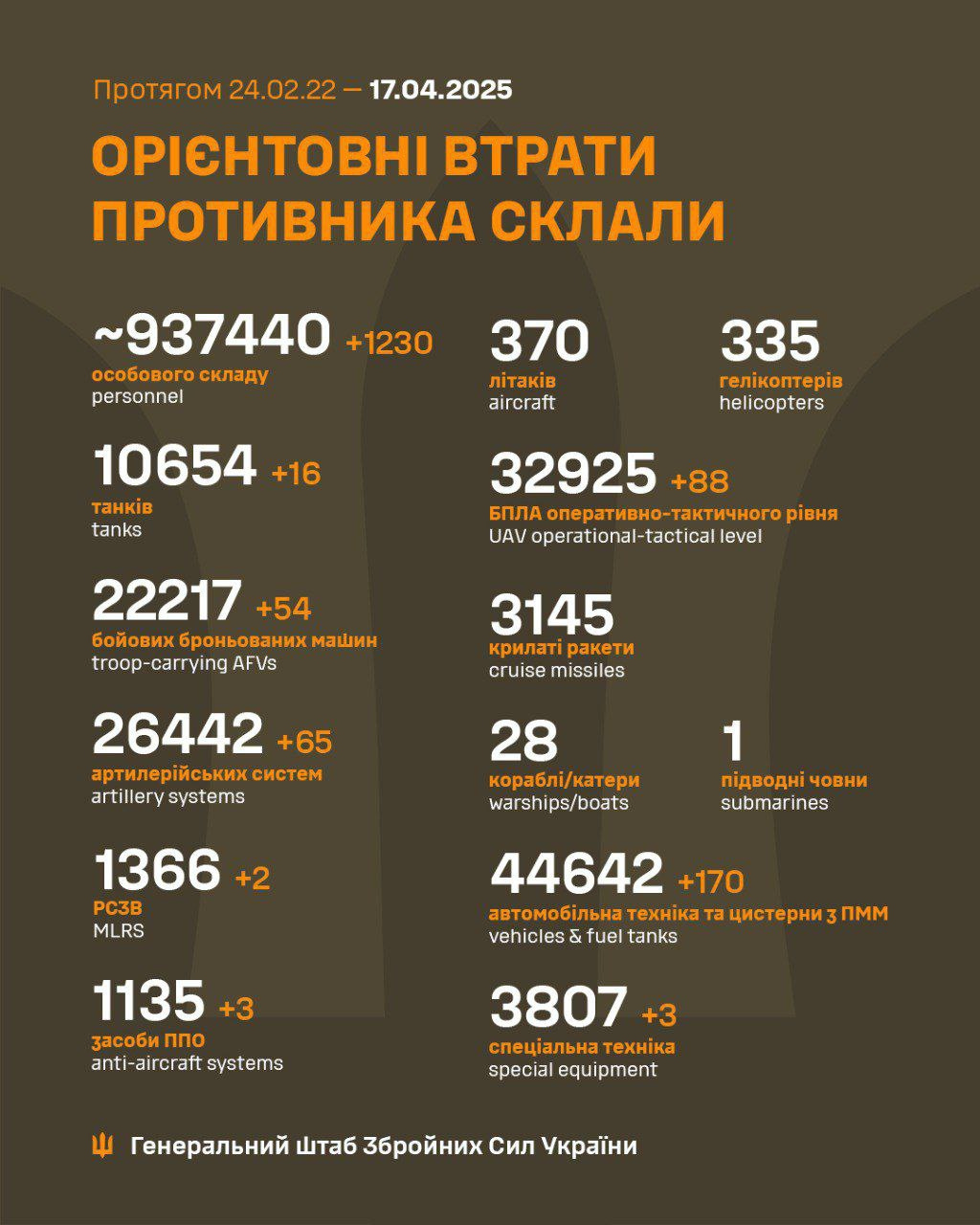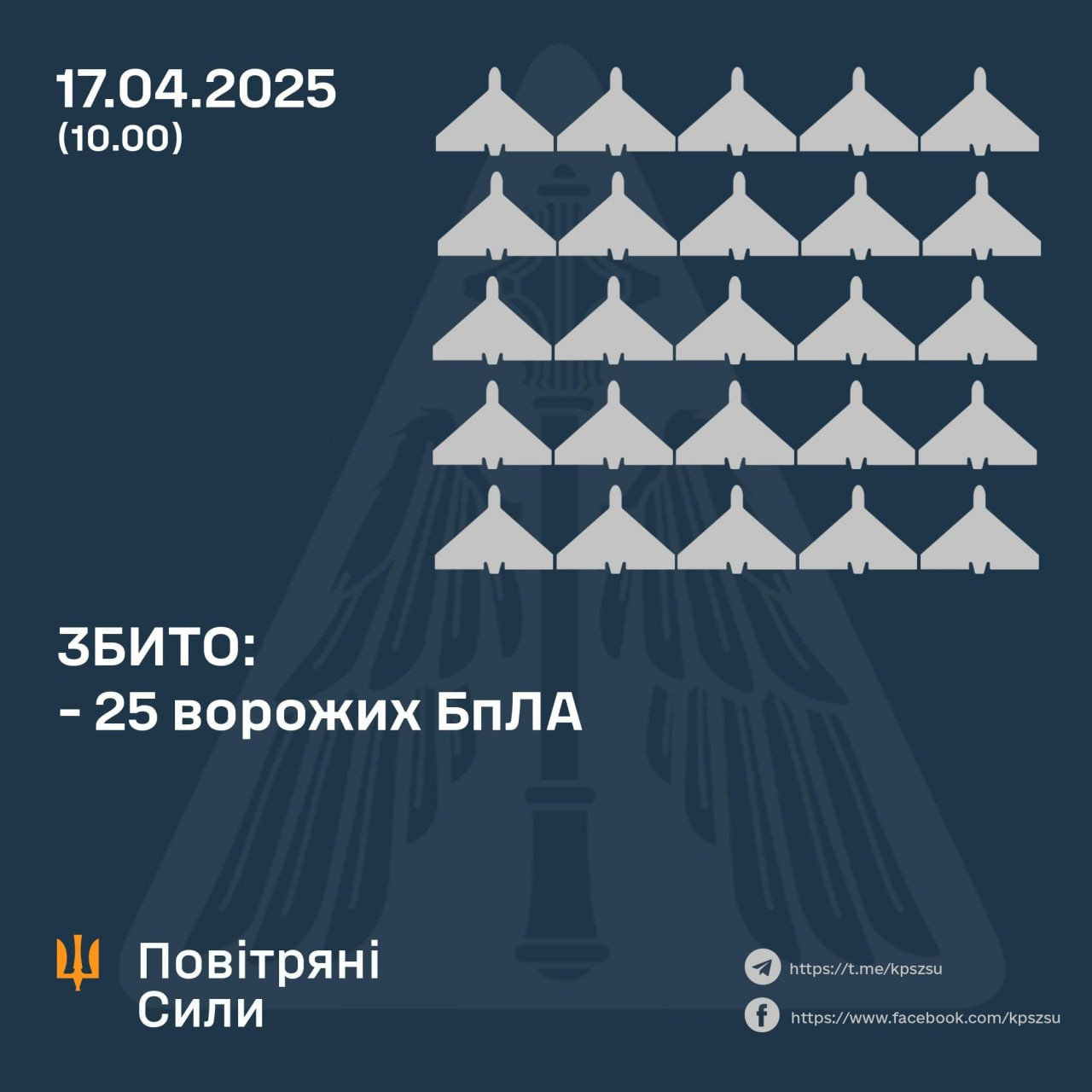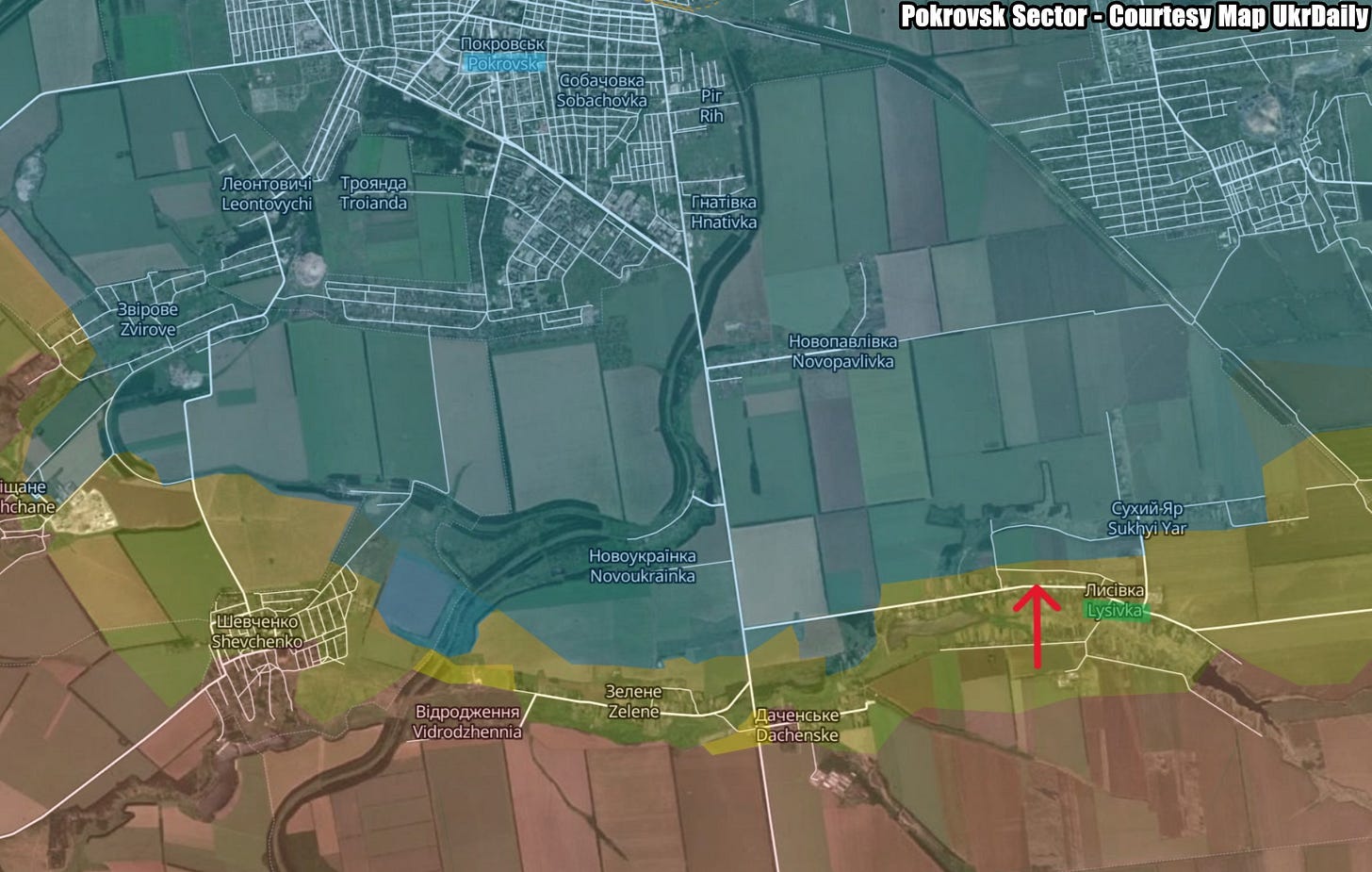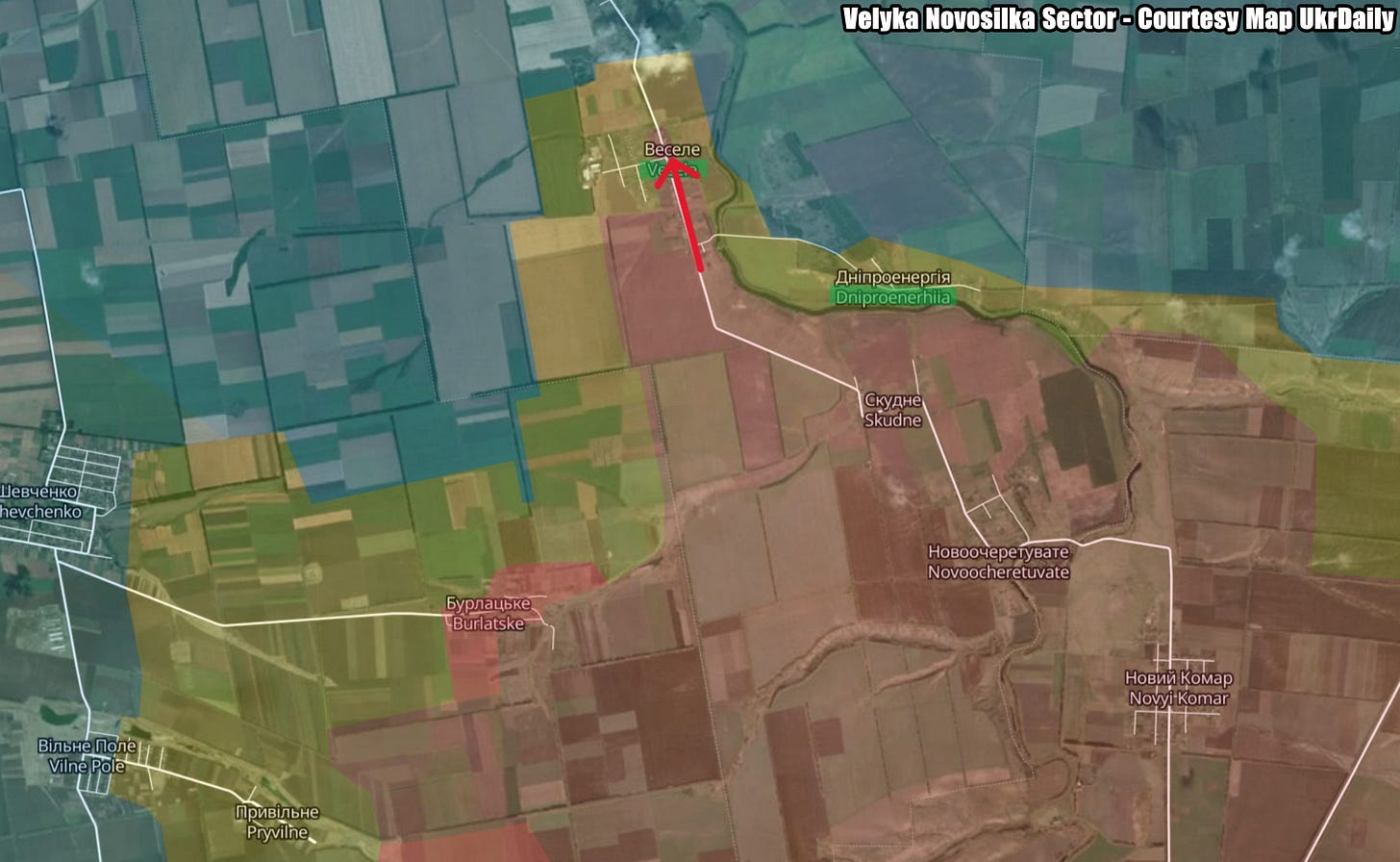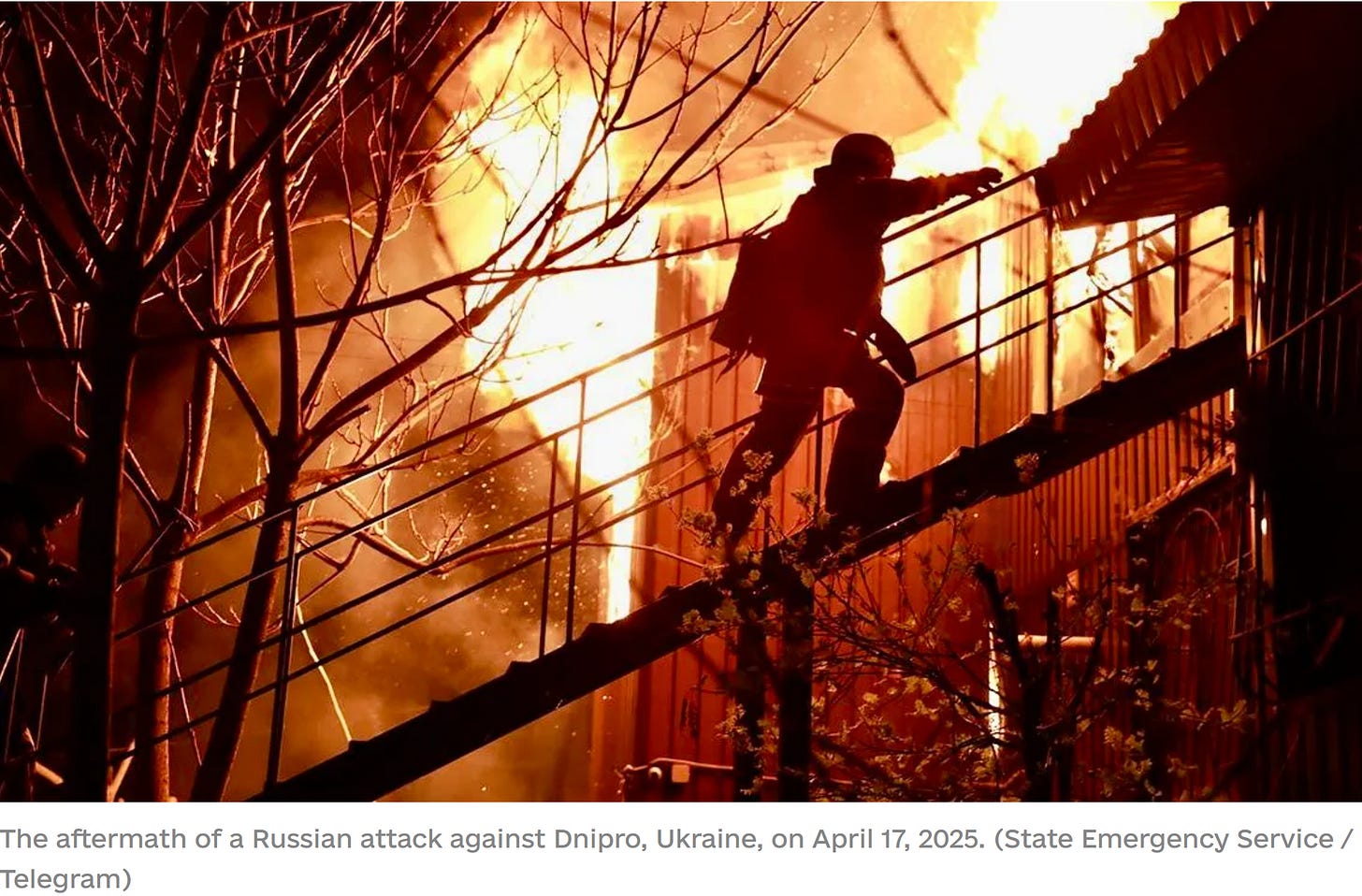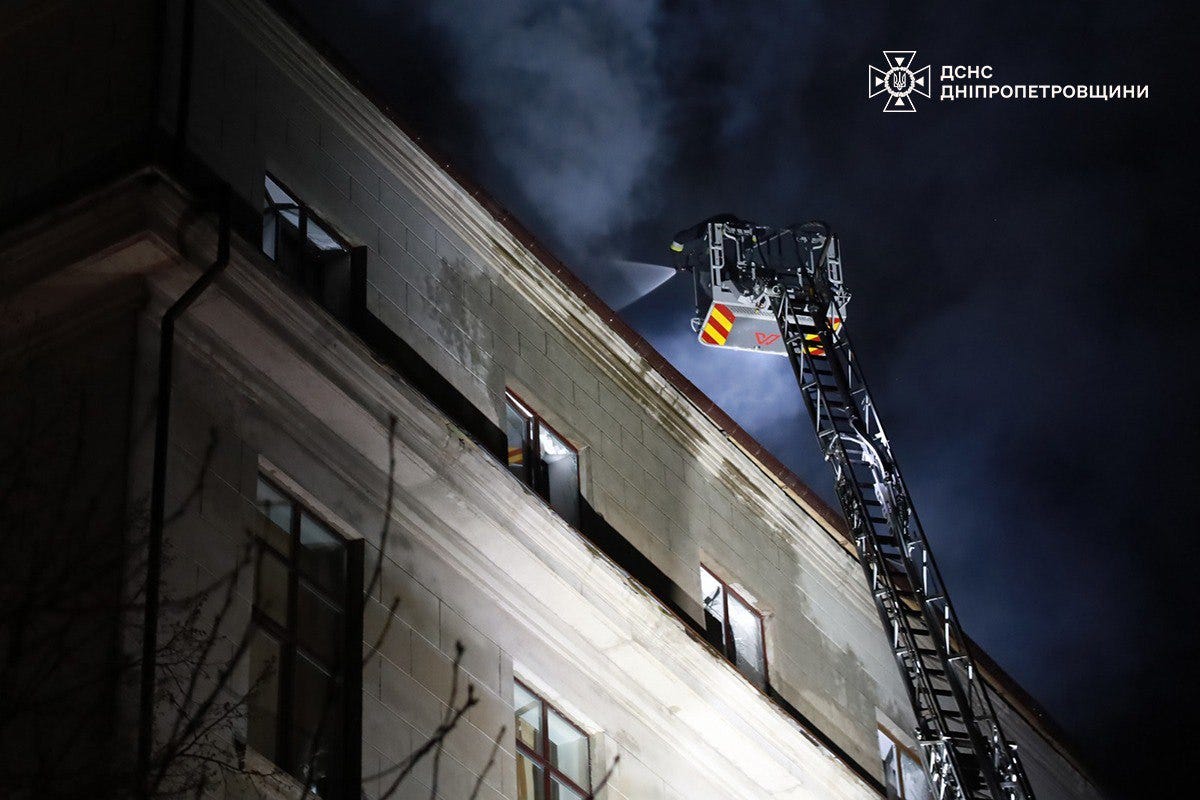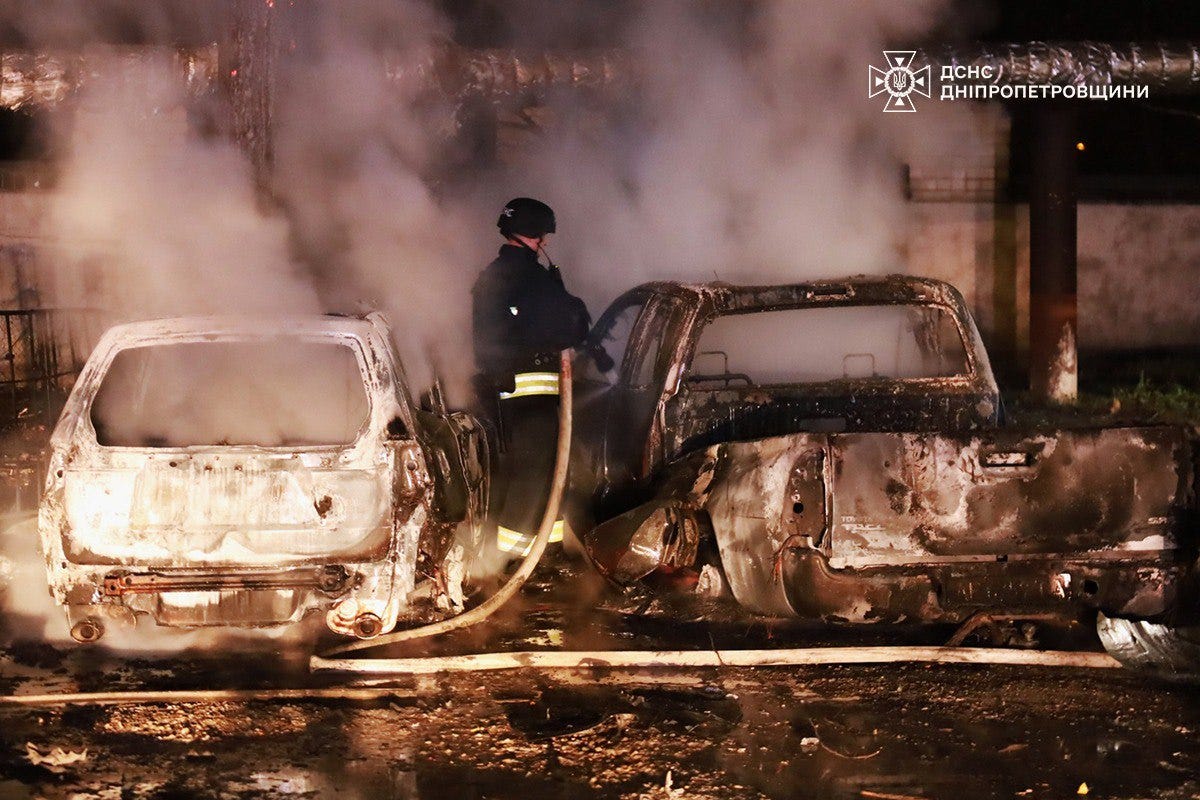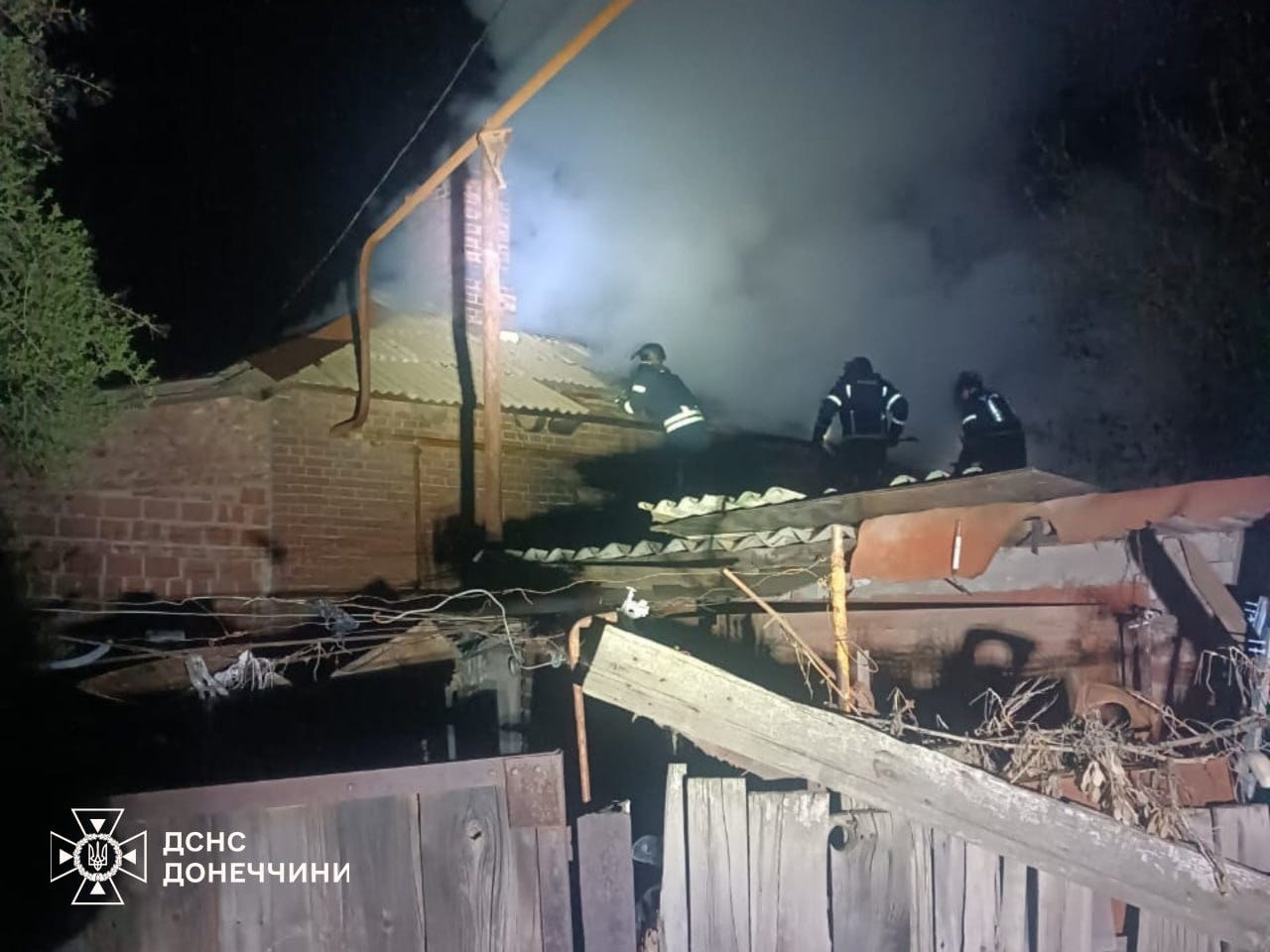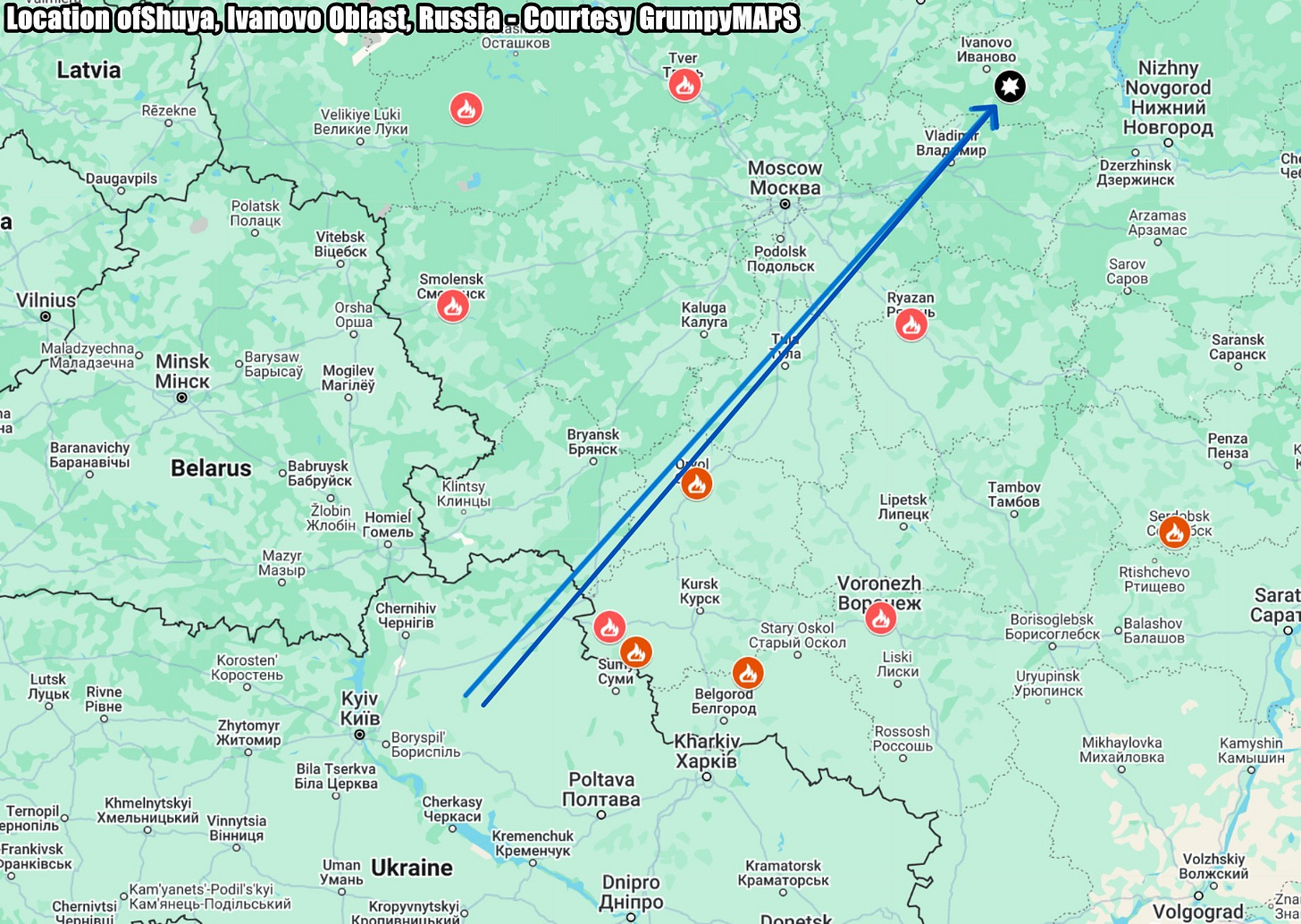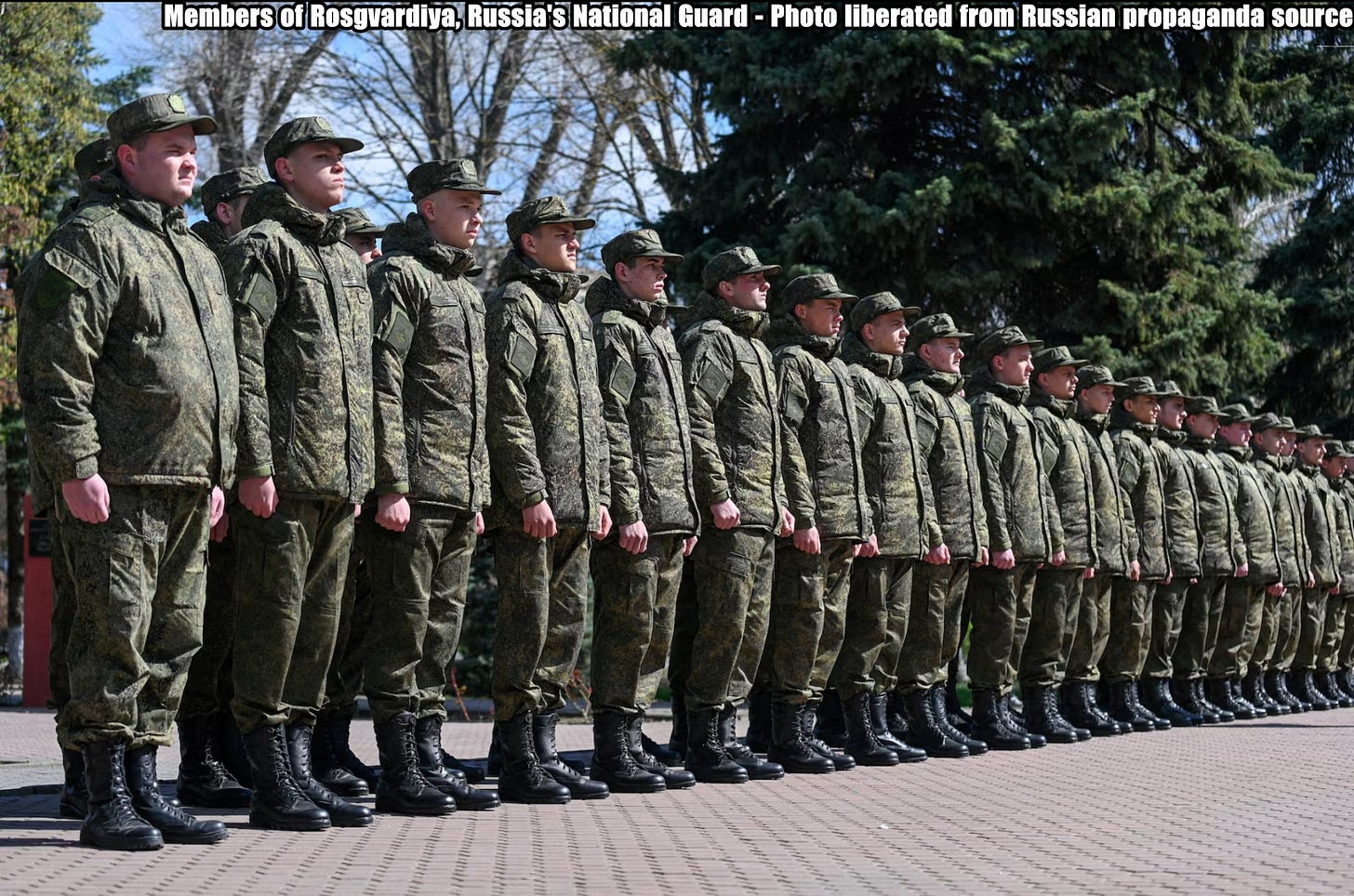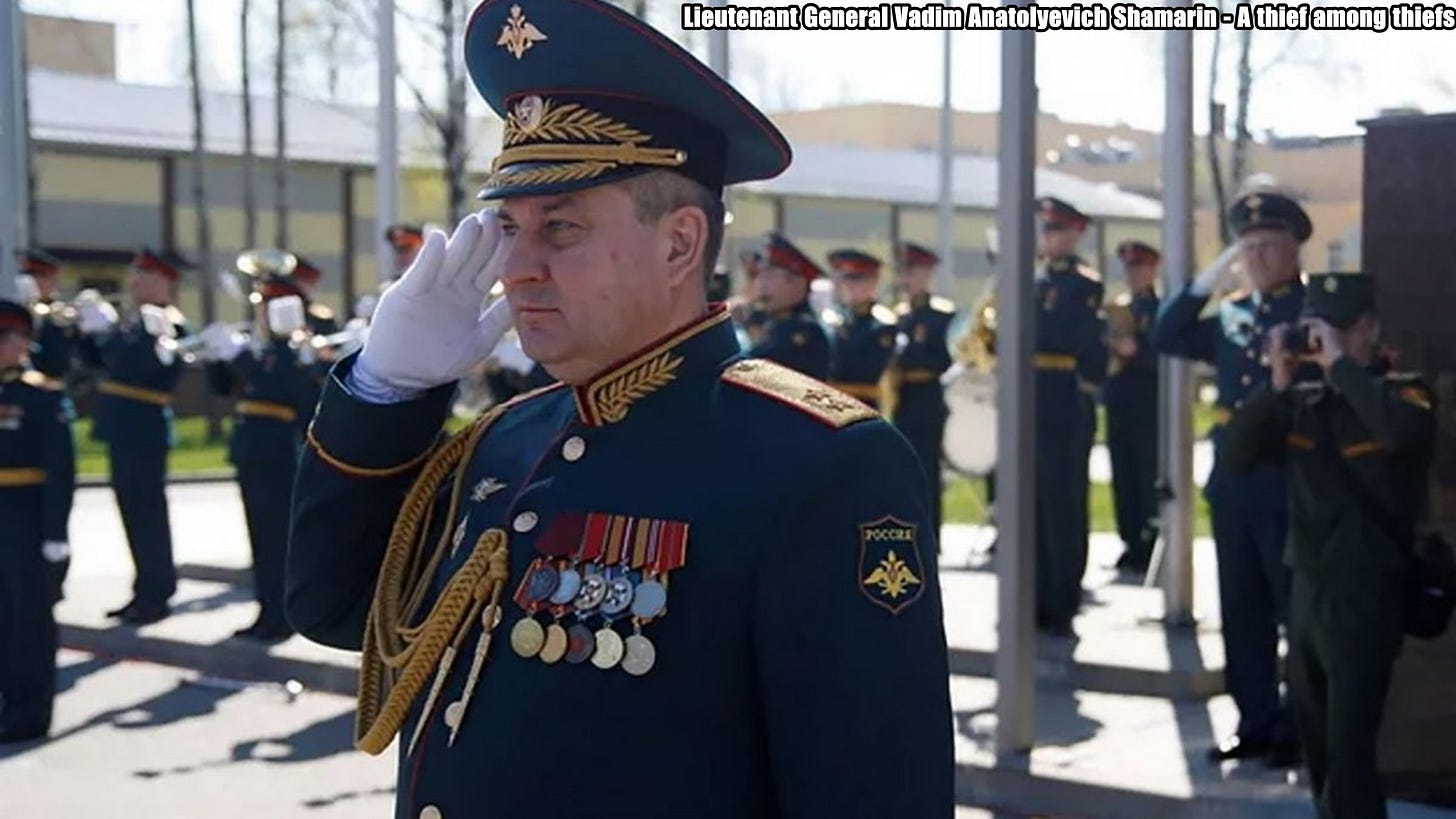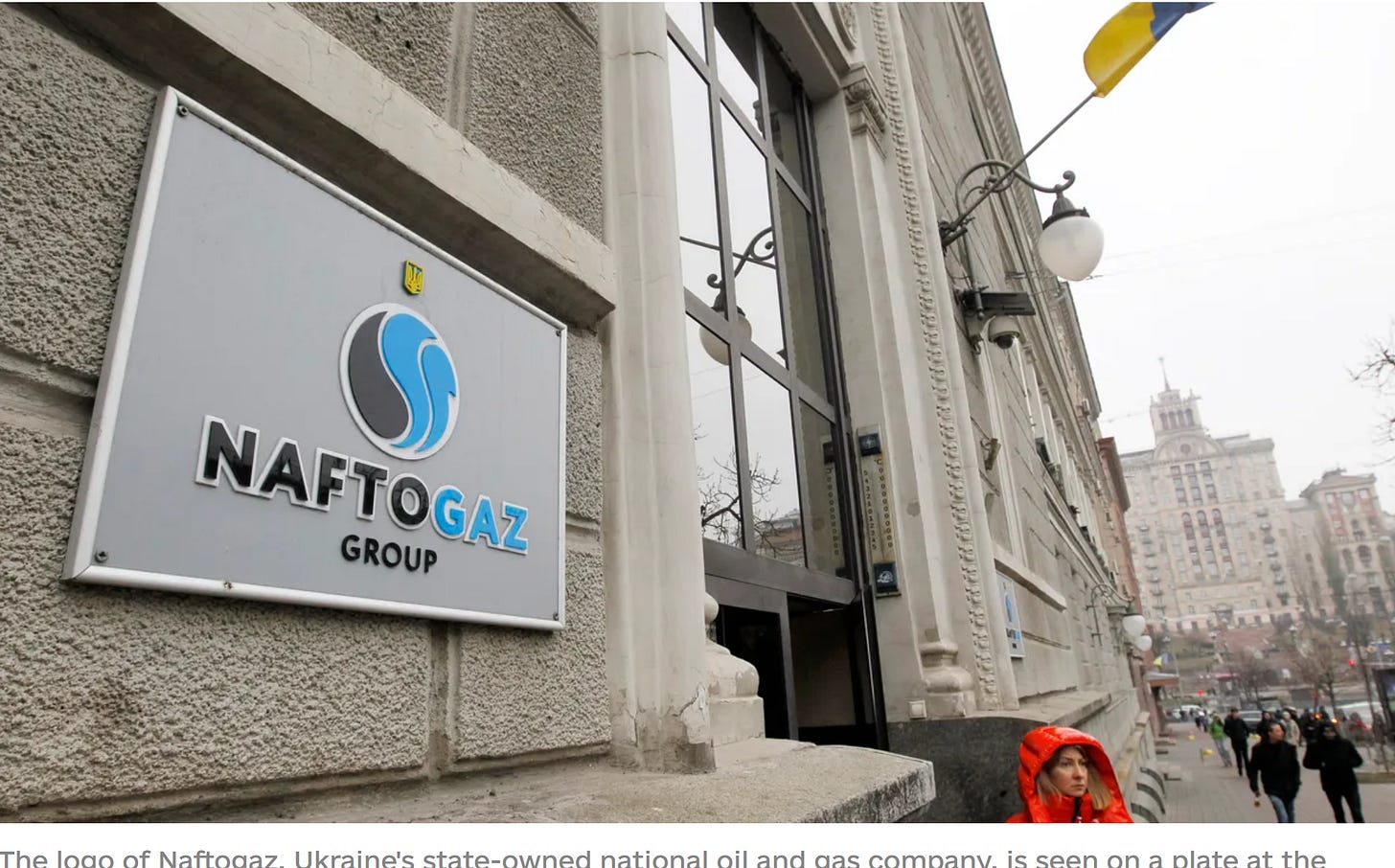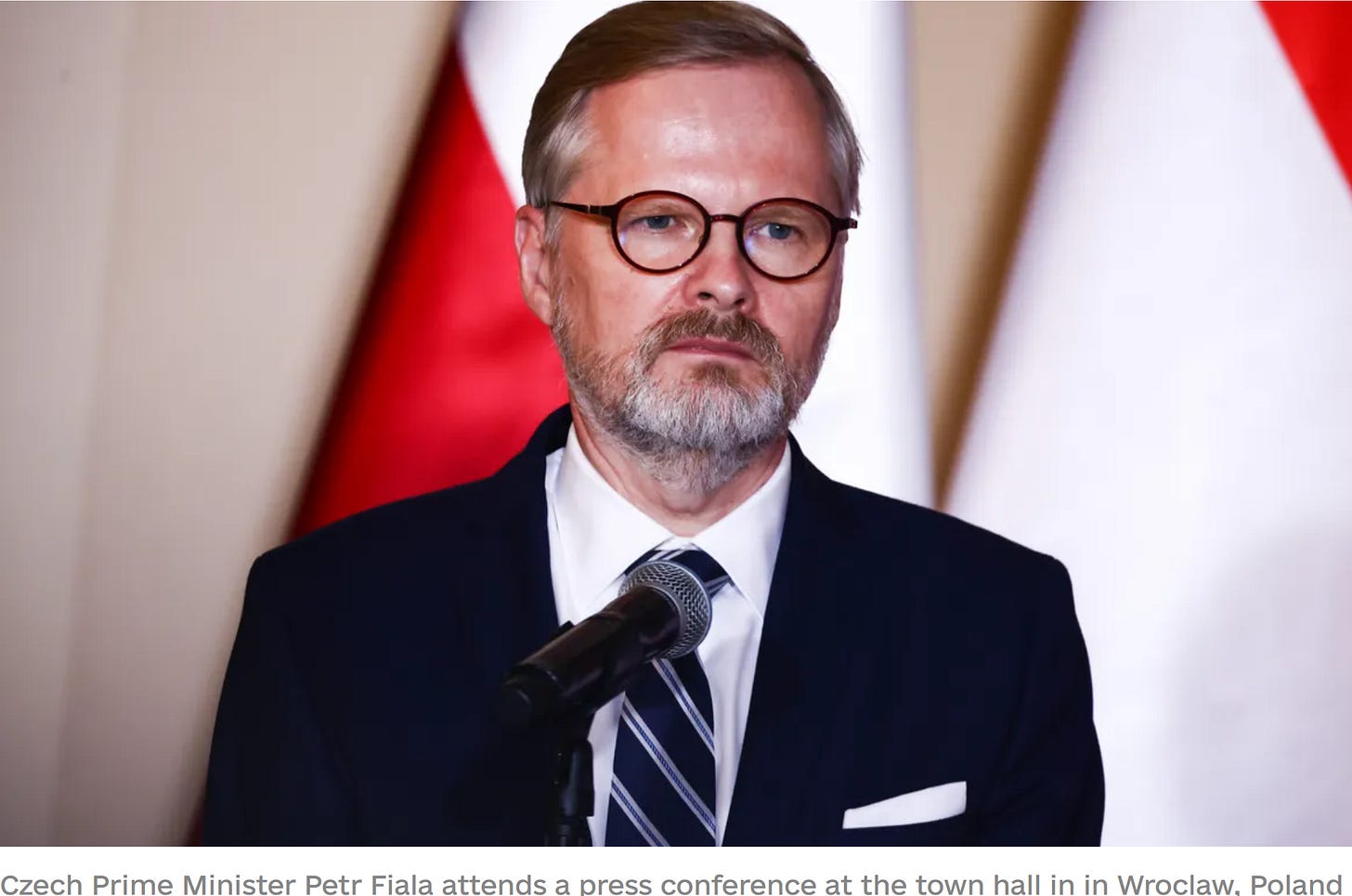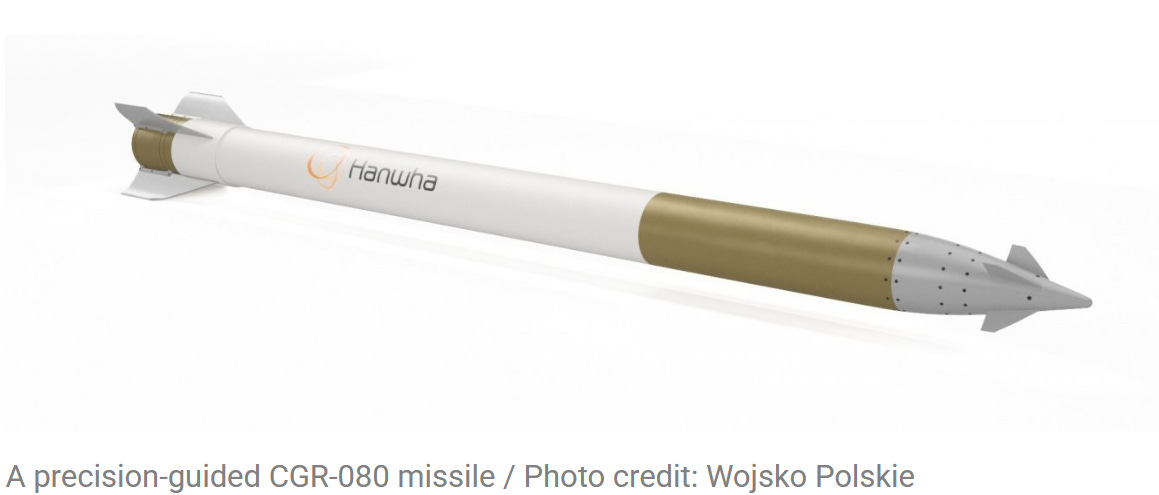Slava Ukraini! In early 2022 I began a Telegram channel aggregating news from a number of sources daily on the war in Ukraine. In June 2023 I began providing a daily draft for the Ukraine War Brief Podcast collecting news from over 70 sources daily, which formed the basis of the script. While the Podcast no longer exists I have continued to make this Brief available for my followers here on Substack for those who wish to keep up with the news from the war.
All the latest news on the Russo-Ukraine War 6 days per week
ALONG THE CONTACT LINE
GSAFU Morning Report
For: Apr 17,2025
The General Staff of the Armed Forces of Ukraine in its Operational Information update at 22:00 on Apr 16 stated that day 1149 of the full-scale invasion of the Russian Federation against Ukraine was about to begin.
The situation on the line of combat remains tense in some sectors. Ukrainian defenders continue to actively counteract the Russian aggressor, causing them significant losses in personnel, equipment and technology. Exhausting the enemy along the entire front line and continuing to disrupt the plans of Russian occupiers to advance deeper into the territory of Ukraine.
During the past day, 87 combat engagements took place.
Over the past 24 hours, the enemy carried out 76 air strikes, used 1,234 drones and fired approximately 5,000 artillery shells across the positions of Ukrainian forces and civilians.
Air Force Daily Report
25 ENEMY UAVS SHOT DOWN, 30 SIMULATOR UAVS FAILED TO REACH THEIR TARGETS (LOCATIONALLY LOST)
➖➖➖➖➖➖➖➖➖
On the night of April 17 (from 8:00 p.m. on April 16), the enemy struck with two Iskander-M ballistic missiles from the Rostov region - Russia, three S-300/400 anti-aircraft guided missiles from the Luhansk region, as well as 75 Shahed attack UAVs and simulator drones of various types from the directions: Kursk, Millerovo - Russia, Chauda - Crimea.
The air attack was repelled by aviation, anti-aircraft missile troops, electronic warfare units, and mobile fire groups of the Defense Forces of Ukraine.
As of 10:00, it has been confirmed that 25 Shahed attack UAVs (and other types of drones) have been shot down in the east, north, south, and center of the country.
30 enemy drone simulators — lost in location (without negative consequences).
As a result of the enemy attack, the Donetsk, Kharkiv, Sumy, and Dnipropetrovsk regions suffered.
Combat Operations in the Russian Federation
There have been no major changes to the combat environment since our last report.
The Khortytsia operational-strategic group
(Responsible for the northeastern part of Ukraine. )
Toretsk Sector: Russian forces recently advanced in the Toretsk direction.
Geolocated footage published on Apr 15 indicates that Russian forces recently advanced along the H-20 Donetsk City-Kostyantynivka highway west of Oleksandropil (southwest of Toretsk and east of Pokrovsk).
The Tavria operational-strategic group
(Responsible for the central-eastern and southeastern part of Ukraine.)
Pokrovsk Sector : Russian forces recently advanced in the Pokrovsk direction.
Geolocated footage published on April 15 indicates that Russian forces recently marginally advanced in southeastern Lysivka (southeast of Pokrovsk).
Velyka Novosilka Sector: Russian forces recently advanced in the Velyka Novosilka direction.
Geolocated footage published on April 16 indicates that Russian forces recently advanced east of Dniproenerhiya (north of Velyka Novosilka) and in northeastern Vesele (northwest of Velyka Novosilka).
The Odesa operational-strategic group
(Responsible for Kherson, Qırım, (also known as Crimea) and the Black Sea.)
There have been no major changes to the combat environment since our last report.
TEMPORARILY OCCUPIED TERRITORIES
Nothing major to report.
THE HOME FRONT
5 killed, 68 injured in Russian attacks on Ukraine.
At least five people were killed and 68 injured in Russian attacks across Ukraine over the past day, the Kyiv Independent reported citing regional officials reported on April 17.
Russia launched 75 drones, including Shahed-type drones, two Iskander-M ballistic missiles, and three S-300/400 anti-aircraft guided missiles against Ukraine overnight, according to the Air Force.
In Dnipro, a drone strike killed three people, including a child, and injured 30, Dnipropetrovsk Oblast Governor Serhii Lysak said. Five of the injured are children. The strike damaged a dozen apartment buildings, numerous houses, a school, a dormitory, and a gymnasium.
In Kherson Oblast, one person was killed and 15 others wounded, including a child, Governor Oleksandr Prokudin said. Russian forces targeted residential areas and critical infrastructure.
Russian attacks in Kharkiv Oblast left 16 people injured, Governor Oleh Syniehubov reported. The strikes damaged residential buildings and civilian infrastructure across multiple communities.
In Donetsk Oblast, a resident of Pokrovsk was killed, and six others were injured across the region, according to Governor Vadym Filashkin.
In Zaporizhzhia Oblast, a 55-year-old man was injured, and Russian forces carried out 350 strikes on 15 settlements during the day, Governor Ivan Fedorov reported.
The widespread attacks come amid continued Russian rejection of a full ceasefire agreement and follow recent intensification of strikes on civilian areas across Ukraine.
RUSSIAN WORLD
Ukraine strikes back at Russian troops that attacked Sumy.
The Institute for the Study of War (ISW), a US based think tank, in its Apr 16 Russian Offensive Campaign Assessment reported that Ukrainian forces struck the base of a Russian missile brigade in Ivanovo Oblast.
Geolocated footage published on Apr 16 indicates that Ukrainian drones struck the Russian 112th Missile Brigade (1st Guards Tank Army [GTA], Moscow Military District [MMD]) in Shuya, Ivanovo Oblast.
Russian opposition outlet Astra reported that Ukrainian forces struck near the base of the 112th Missile Brigade. The Russian Ministry of Defense (MoD) claimed that Russian forces destroyed seven drones over Ivanovo Oblast, and the Ivanovo Oblast operational headquarters claimed that Russian forces repelled a drone strike in Shuya.
Ukrainian drones attack Russian brigade linked to Sumy strike for second day in row.
Ukrainian drones struck positions of Russia's 112th Missile Brigade in Shuya in Ivanovo Oblast on April 17, marking a second day of the attacks in a row, sources in Ukraine's Defense Forces reported to the Kyiv Independent.
The brigade, which Ukraine's intelligence said was behind the Palm Sunday strike against Sumy on April 13 that killed 35 people, was also attacked by drones on April 16.
Shuya's residents reported explosions in the early morning hours of April 17, with local authorities issuing a drone alert. Footage shared online shows explosions and a fire in the area.
Independent news outlet Astra said it had geolocated one of the videos of the strike, placing it 180 meters from the brigade's garrison. The extent of damage or possible casualties is not immediately clear.
Moscow plans to use seized US-owned company to feed Russian army.
Plans are afoot for an American-owned company seized by the Kremlin and placed under state control to be used to supply food to the Russian army, a document seen by Reuters reported, potentially threatening Moscow's warming relations with the U.S.
As the U.S. and the Kremlin negotiate to stop the war in Ukraine, the canned food maker Glavprodukt which was seized in October and is the only American-owned firm to be taken under state control, has been caught in the crosshairs.
U.S. Secretary of State Marco Rubio has said its treatment will be part of the conversation about resetting U.S.-Russia relations.
The seizure was necessary to ensure stable production, including for future supplies to the national guard and defence ministry, according to a letter, reviewed by Reuters, addressed to Russia’s prosecutor general from Glavprodukt’s new management.
Glavprodukt is now under the control of Russia’s federal property management agency Rosimushchestvo having been seized from Los Angeles-based Leonid Smirnov.
Russia’s industry and trade ministry and Rosimushchestvo did not respond to requests for comment on the state's plans for Glavprodukt and questions about its new management.
Russian prosecutors have accused Smirnov and companies controlled by him of moving about 1.38 billion roubles ($17 million) out of Russia from 2022 to 2024, the RBC daily reported in March.
On March 12, Glavprodukt's assets were seized by the Moscow Arbitration Court at the request of the prosecutor general’s office. A hearing is scheduled for April 18. Smirnov denies wrongdoing and says the lawsuit is a "Russian-style corporate raid" to steal his company.
The prosecutor general did not immediately respond to a request for comment.
About a dozen European companies have had their Russian subsidiaries expropriated by presidential decree, including Danish brewer Carlsberg and Finnish utility Fortum and the Kremlin has warned of more asset seizures.
The Ukraine invasion was expected to be a quick operation, but the war has now stretched to more than three years, seeing Russia hike defence spending and secure tighter control of strategic assets. In 2022, Russia was scrambling for military supplies, including food.
The letter reviewed by Reuters shines a light on the people standing to gain from the expropriation. It said that Rosimushchestvo appointed Glavprodukt’s new director general at the request of food producer Druzhba Narodov.
Druzhba Narodov was the sole supplier to Russia’s national guard for 2019-20, according to a 2018 press release.
A person familiar with the matter said that Glavprodukt never previously supplied Russia’s army.
A 2018 investigation by late opposition politician Alexei Navalny’s Anti-Corruption Fund revealed that then President Dmitry Medvedev had in 2017 signed off on Druzhba Narodov becoming the national guard’s sole supplier.
Ownership information for Druzhba Narodov is classified, but Russian newspaper Kommersant reported in 2022, citing then publicly available information on Russia’s EGRUL corporate registry, that entities connected to agriculture holding 'Agrocomplex named after N. I. Tkachev' had acquired Druzhba Narodov.
The holding’s ultimate owner is Alexander Tkachev, according to the company’s 2025 independent audit filings, reviewed by Reuters.
Tkachev, sanctioned by the European Union in 2014 for his support of Moscow’s annexation of Crimea, was appointed Russia’s agriculture minister the following year, and is the holding company’s board chairman, the filings show.
Former top Russian military official gets 7 years in penal colony.
The former deputy head of the Russian army's general staff was sentenced on Thursday to seven years in a penal colony for taking hundreds of thousands of dollars in bribes, Reuters reports.
Vadim Shamarin, a lieutenant-general, is one of a string of top officials charged in a series of corruption scandals that have engulfed the highest echelons of the Russian military establishment over the past year.
The prosecutions signal a drive by President Vladimir Putin to clamp down on graft, inefficiency and waste in Russia's huge military budget as it wages war in Ukraine for a fourth year.
Russia's Investigative Committee said Shamarin, 53, took bribes worth 36 million roubles ($440,000) between 2019 and 2023 from a factory in the Ural mountains that produces communications equipment. In return, he increased the size of state contracts awarded to the firm.
Interfax news agency said the official had pleaded guilty.
Since 2020 Shamarin had been in charge of overseeing the army's Signal Corps, which is responsible for military communications, including ensuring confidential battlefield command signals.
The court stripped him of his rank and banned him from public service for seven years.
The slew of scandals - the biggest to hit the Russian army in years - includes criminal cases against former deputy defence ministers Timur Ivanov, Pavel Popov and Dmitry Bulgakov. All served under Sergei Shoigu, who was defence minister until being replaced in a reshuffle last year and moved to a new role as secretary of Russia's Security Council.
In the latest case, the former governor of the western Kursk region was arrested on Wednesday and charged with embezzling money earmarked for building defences along the border with Ukraine.
Alexei Smirnov was head of the region when Ukrainian troops stormed across the border in a large-scale incursion last August. Ukraine seized a chunk of Kursk and held onto it for months, but since then a Russian offensive has ejected most of its forces.
RELATED INTERNATIONAL NEWS
French court enforces $5 billion Crimea damages award against Russia in Naftogaz case.
A French court has authorized the enforcement of a $5 billion arbitration award against Russia for damages caused to Ukraine's state-owned energy company Naftogaz during the occupation of Crimea, the company announced on Apr 17.
The decision allows Naftogaz to begin legal recovery efforts in France, including seizing Russian state assets to satisfy the award.
The enforcement, known legally as exequatur, follows a 2023 ruling by the Permanent Court of Arbitration in The Hague, which found Russia liable for the illegal expropriation of Naftogaz assets following the 2014 annexation of Crimea.
"This is an extremely important legal victory for Naftogaz Ukraine and five other group companies. It allows Naftogaz to start recovery proceedings in France," Naftogaz Group head Roman Chumak said in a statement.
As part of its enforcement campaign, Naftogaz has already placed encumbrances on several Russian state-owned assets in France totaling over 120 million euros (around $136 million).
The move is the first step toward forcibly recovering damages if Moscow refuses to comply with the arbitration ruling.
Under international law, arbitration awards can be enforced in multiple jurisdictions through domestic courts. If a defendant's state fails to pay voluntarily, creditors can seek to seize foreign-held assets to satisfy the judgment.
Russia's 2014 annexation of Crimea, following the ousting of pro-Kremlin President Viktor Yanukovych during Ukraine's EuroMaidan Revolution, led to the unlawful takeover of Ukrainian state and corporate property across the peninsula.
Naftogaz, Ukraine's largest energy firm, lost critical infrastructure, natural gas reserves, and service networks in the region. Its case against Russia became one of the most high-profile corporate arbitration claims arising from the annexation.
Czechia independent of Russian oil for the first time in history.
Czechia is now completely independent of Russian oil, Czech Prime Minister Petr Fiala and other officials announced on April 17, marking the first time in history no Russian pipeline oil flows to the country, the Kyiv Independent reports.
Prague is receiving no supplies through Russia's Druzhba oil pipeline for the first time in over 60 years, securing alternative supplies thanks to the expansion of the western Transalpine Pipeline (TAL), running through Italy, Austria, and Germany.
The move underscores Europe's efforts to end its reliance on Russian fossil fuels in response to Moscow's all-out invasion of Ukraine. In May, the EU is expected to present a plan for a full phase-out of Russian fossil fuels by 2027.
"We completed another step toward our energy independence," Fiala told journalists at the central oil storage facility near Prague alongside Finance Minister Zbynek Stanjura and Jaroslav Pantucek, director of the state-run oil transit company MERO.
Officials said Czechia has not been receiving Druzhba oil for several weeks. In recent years, Russian oil covered roughly half of the country's demand.
Prague expects up to 8 million metric tons of oil from the western pipeline per year, which should be sufficient to cover its needs.
While the EU banned Russian pipeline oil imports in 2022, Czechia, Slovakia, and Hungary received a waiver from the ban due to the lack of viable alternatives.
Already in November 2022, the Czech government decided to launch the TAL-PLUS project to secure an alternative oil supply. Technical work on the project began in May 2024, and the same year, Prague said it would not seek an exemption from the ban on Russian oil.
The Druzhba pipeline, running from Russia through Ukraine and Belarus to EU countries, was first launched in then-Czechoslovakia in 1962.
Top Ukrainian officials arrive in Paris for talks with European, US officials.
Presidential Office head Andriy Yermak, Foreign Minister Andrii Sybiha, and Defense Minister Rustem Umerov arrived in Paris on April 17 to discuss security guarantees for Ukraine and meet visiting U.S. officials, the Kyiv Independsent reports.
"As part of the visit, a series of bilateral and multilateral meetings are planned with representatives of countries from the coalition of the willing and able to guarantee security — including France, Germany, and the United Kingdom," Yermak said on social media.
The British- and French-led coalition of the willing, involving some 30 countries, was launched in March to provide security guarantees for Ukraine in case of a ceasefire. Six members of the coalition are reportedly ready to deploy their troops on the ground to monitor the truce.
Later in the day, after initial discussions, Yermak said that Ukrainian and European officials "exchanged views on the next steps toward achieving a just and lasting peace." These included implementing a ceasefire, a reassurance force, and an effective security architecture for Ukraine.
European delegates involved in the talks included French presidential diplomatic advisor Emmanuel Bonne, U.K. National Security Adviser Jonathan Powell, and German National Security Advisor Jens Plotner.
"Meetings are also scheduled with representatives of the United States currently present in France," Yermak noted.
France is hosting U.S. Secretary of State Marco Rubio and Special Envoy Steve Witkoff, who arrived in the country to "advance President (Donald) Trump’s goal to end the Russia-Ukraine war," the U.S. State Department said.
Kyiv and its European partners have been working to secure stronger security commitments from the U.S. to help deter any future Russian aggression. As Washington ruled out contributing its troops to the planned "reassurance force" in Ukraine, London seeks to sway Trump toward providing at least intelligence or airpower support — so far without success.
Instead, Trump is trying to hash out a ceasefire deal between Kyiv and Moscow, using a strategy seen by critics as favorable to Russian positions.
The U.S. president had temporarily paused military and intelligence aid for Ukraine to pressure it to the negotiating table, while his threats to impose additional tariffs and sanctions against Russia have yet to materialize.
Trump's efforts to broker a ceasefire have nevertheless stalled, as Russia continues to reject a full 30-day truce, and has violated a partial ceasefire on strikes against energy infrastructure.
This has reportedly led to a split within Trump's team, with some officials, like Rubio, urging a tougher stance toward the Kremlin, while Witkoff continues to push for a deal with Russian President Vladimir Putin.
MILITARY & TECH
Poland and South Korea Establish Joint Venture to Build Rockets For "HIMARS Rival" Chunmoo.
Poland launched a localization project for Korean-made K239 Chunmoo systems, with the goal of producing precision-guided CGR-080 rockets domestically, Defense Express reports.
WB Group (Poland) and Hanwha Aerospace (South Korea) have signed an agreement to establish a joint venture for the production of CGR-080 precision-guided rockets for the Polish variant of Chunmoo, designated Homar-K. The new enterprise will be 51% owned by Hanwha Aerospace and 49% by WB Electronics, a subsidiary of WB Group.
This step finalizes a preliminary agreement reached in October 2024, as part of the larger procurement deal. Under the contract, Korean rocket modules are mounted on Polish Jelcz chassis and integrated with the Polish Topaz fire control system.
The initiative stems from a 2022 contract under which Poland ordered 288 K239 launchers with partial localization rights, including the license for manufacturing the 80 km-range CGR-080 missiles
Given the scale of the Homar-K acquisition for the Polish Armed Forces, domestic rocket production is essential. A full salvo of CGR-080s from all 288 launchers — expected to be delivered by 2029 — would require 3,456 rockets.
Crucially, the agreement also allows for the export of Polish-made rockets. This aspect is vital for South Korea, as potential buyers of the Chunmoo system include Norway, Sweden, and Romania. In this context, Hanwha Aerospace views Poland’s manufacturing capabilities as critical for expanding its market presence in Europe, particularly with potential funding support from the EU’s ReArm Europe initiative.
The CGR-080 is essentially the Korean counterpart to the American GMLRS used in HIMARS. While it has a slightly larger diameter (239 mm vs. 227 mm), it features a similar 90-kg warhead, a range of around 80 km, and dual-mode guidance via satellite and inertial navigation systems.
According to Defence24, which attended the signing ceremony, WB Group stated that Poland currently lacks the capacity to manufacture the CGR-080. The process will gradually increase the share of Polish-made components. At present, the future plant's location has been narrowed down to several potential sites.
WB Group estimates that three years will be required to launch production. This timeline includes completing all bureaucratic procedures, constructing the facility, procuring and installing production equipment, recruiting and training personnel, and manufacturing the first batch of rockets. Neither the planned production volume nor the total project cost has been disclosed.
Nevertheless, this cooperation appears more comprehensive and strategically significant than what Poland may secure through its separate plan to acquire 486 HIMARS launchers — or rather, their rocket modules — which will also be mounted on Jelcz trucks. So far, there have been no confirmed plans to produce GMLRS rockets in Poland.
That’s it for today’s Brief folks if you would like to keep up with events in Ukraine daily please consider subscribing, it’s free!







